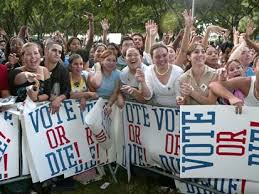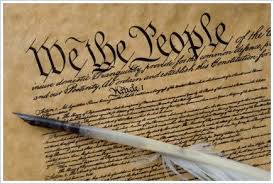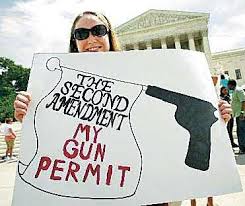Constitution Party National Platform
The Declaration of Independence,
The Constitution of the United States
The Bill of Rights
According to the original intent of the Founding Fathers, these founding documents are the foundation of our Liberty and the Supreme Law of the Land.
The sole purpose of government, as stated in the Declaration of Independence, is to secure our unalienable rights given us by our Creator. When Government grows beyond this scope, it is usurpation, and liberty is compromised.
We believe the major issues we face today are best solved by a renewed allegiance to the original intent of these founding documents.
HISTORY
1992 A coalition of independent state parties united to form the U.S. Taxpayers Party. The party’s founder, Howard Phillips, was on the ballot in 21 states as its first presidential candidate.

1995-99 Party recognized by Federal Election Commission as a national party bringing the number of recognized parties to 5. Ballot access achieved in 39 states for the 1996 elections, representing over 80% of the electoral college votes available.
1999 Name changed to “Constitution Party” by delegates at the National Convention to better reflect the party’s primary focus of returning government to the U.S. Constitution’s provisions and limitations.
2000 & 2004 The party achieved ballot access in 41 and 36 states respectively. Though the party was on fewer state ballots in 2004, the vote tally increased by 40% compared to the 2000 elections while other ‘alternative’ parties lost ground or barely matched their 2000 vote totals.
2008 The Constitution Party was on the ballot in 37 states. Presidential candidate Chuck Baldwin and vice-presidential candidate Darrell Castle, endorsed by former GOP presidential candidate, Congressman Ron Paul, polled a higher percentage of the vote than any other Constitution Party presidential ticket in 27 states for a total of 199,314 votes.

NUMBERS
The CP is the third largest political party in terms of voter registration. There are 367,000 registered Constitution Party voters. (This number does not take into account the many states which do not tally voter registrations by party. In addition, thousands of voters registered with other parties have chosen to vote for Constitution Party candidates at the national, state and local levels.)

One quarter of all voters nation-wide are registered as independent or as members of a ‘third party’. Over the last 10 years this has been the largest growing segment of voter registrations. Some states’ third party or independent registrations approach 1/3 of all registered voters.
Independent voters are playing a bigger role in national and local politics as disappointment with both the Republican and Democratic parties increases.
A Fox News poll (www.foxnews.com) showed 67% of Americans said they'd consider voting for an independent candidate. An earlier Rasmussen survey showed 58% said it would be good for the United States to have a "truly competitive" third party. Voters are now weighing their options, especially on the issue of immigration. According to Rasmussen, 35% of conservatives said they'd pick a third party candidate over a Republican.
In 2012, the Constitution Party expects to have ballot access in all 50 states.
CANDIDATES
CP candidates were elected to partisan offices for the first time in 2006, including Montana State Representative Rick Jore.
CP candidates appear more and more on local, State and National ballots as we grow. The 2009 Virginia State elections in the Roanoke Valley featured Constitution Party candidates (Will Smith - Botetourt & Scott Wolk - Roanoke/Salem) that faired well and the CP platform was well received by those conservatives disenfranchised with the GOP.
Independent voters (those that have no official party membership), especially Conservative Christians, are realizing the CP truly represents their interests versus the establishment GOP that pays lip service to those ideals by often rendering votes otherwise.
PLATFORM
The Constitution Party is the only party which is completely:
Pro-Life
Pro-States’ Rights
Pro-Second Amendment
Pro-Constitutional, Limited Government
Against- illegal immigration and open borders
Against- U.S. policy being dictated by the United Nations
Against- undeclared unconstitutional wars (such as Iraq and Afghanistan)
Against- free trade and all international trade agreements such as NAFTA & GATT

(3)(1).jpg)




WHY A THIRD PARTY?
1. To encourage voter participation and citizen involvement in the governing process.
2. Competition yields a Superior Product; i.e. better elected officials and better government.
· 95% of all incumbent candidates win re-election. In recent years, between 50 and 75 of incumbent Congressmen in the U.S. did not face an opponent on the November ballot, allowing them to be reelected without even campaigning.
· Voter choice is even more limited in state legislative races. 35 to 40% of the 6900 seats in state houses across the US (over 2500 seats) typically have no competition.
3. To address issues ignored by the two parties in power.

Past third parties championed…
· A Woman’s Right to Vote -introduced in 1872 by the Prohibition Party. It wasn’t until 1916 that the two political parties in power began to consider the issue.
· Abolition of Slavery-introduced by the Liberty Party (1840/1844) The issue was not fully accepted by the Republican Party even as late as 1860. The Republican Party was itself a third party in 1854 when it was founded. Just a few years later, the Republicans defeated the incumbent conservative party, the Whigs, by running a man named Abraham Lincoln. Lincoln, running in a four-way race, won the electoral college and the presidency even though he wasn't on the ballot in nine states and received less that 40% of the popular vote.
· A Balanced Budget- focus of Independent/Reform Party (1992/1996) candidate Ross Perot who campaigned for fiscal restraint. By the time George W. Bush became president the budget was balanced. Today both parties give strong lip service to ending deficit spending though neither party is willing to make the tough political choices needed to balance the budget.